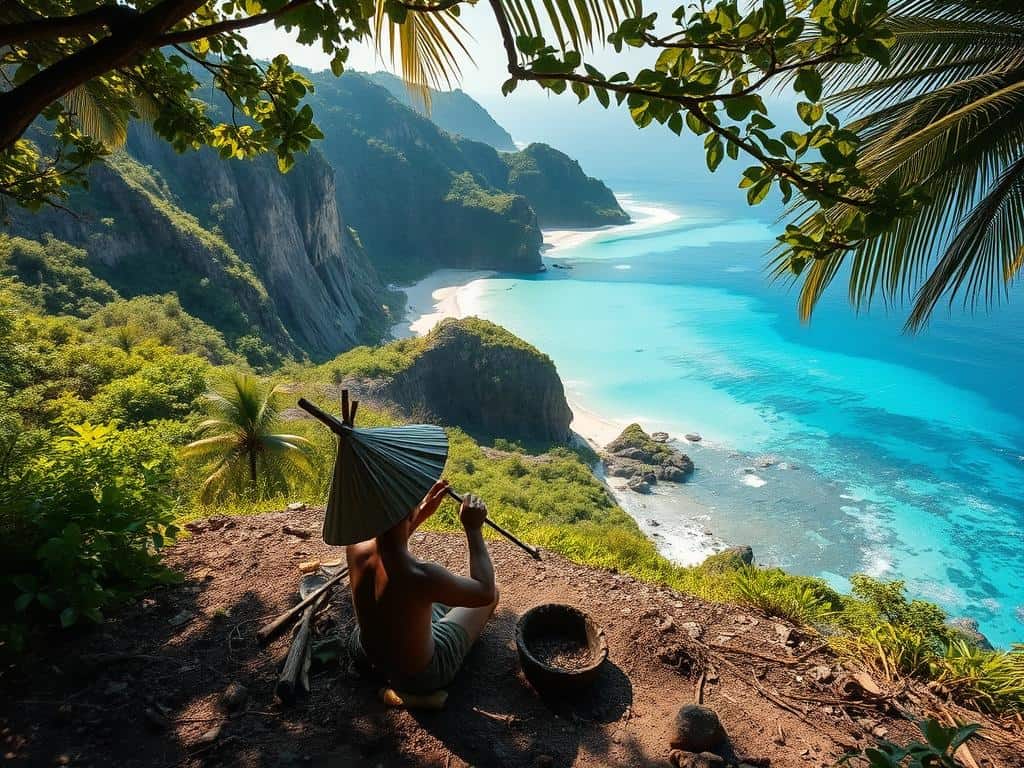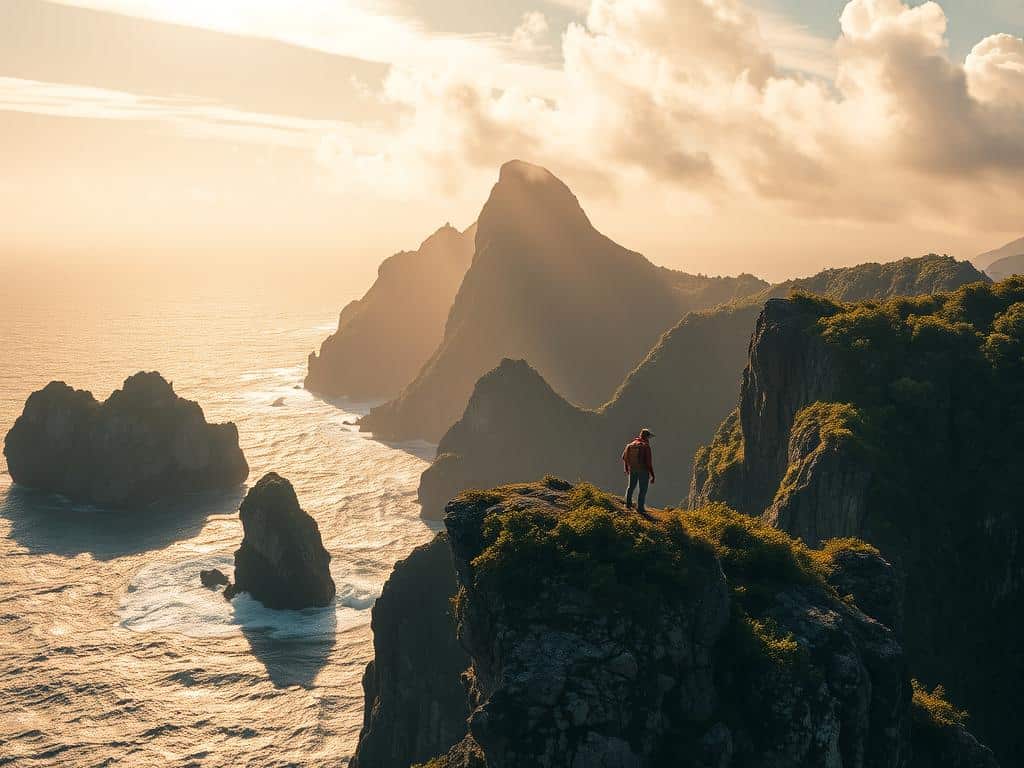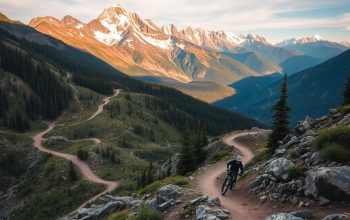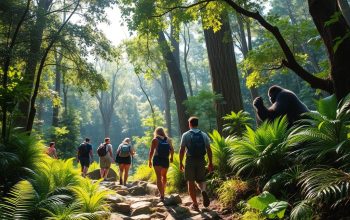Did you know deserted islands can be both a safe haven and a test? From 2010 to now, about 1,500 adventurers have joined Docastaway. An amazing 95 percent of them chose to go solo. This shows how tempting the modern-day castaway challenge is.
On these survival islands, people often leave behind modern comforts for a week. They can pick from two options: Comfort or Survivor mode. Survivor mode is for those who want a real challenge, learning to survive by foraging from nature.
Urara Takaseki’s story is a great example. She used just a few tools to start a fire and survived. Her journey shows the difference between being prepared and relying on instinct. She even gained weight eating coconuts, showing the importance of both body and mind in island survival.
Thinking about the castaway challenge makes me think about the emotional and mental challenges it poses. While physical survival is important, it’s only 20 percent of the experience. The other 80 percent is about mental toughness. If you’re curious about surviving on an island, this journey will show you how rewarding it can be.
Key Takeaways
- About 1,500 clients have experienced Docastaway in the last decade.
- 95 percent of clients prefer solo travel for their castaway challenge.
- Weekly costs at Docastaway range from $1,600 to $6,500.
- Survivor mode clients undergo extreme isolation and foraging for food.
- Survival is made up of 80% psychological factors and 20% physical factors.
- Coconuts can be a rich food source, each providing significant calories and hydration.
- Fishing traps can be ingeniously constructed from washed-up plastic bottles.
The Allure of Survival Islands
The idea of being a castaway has always fascinated many. Exploring remote islands shows why people are drawn to survival experiences. Companies like Docastaway give people a chance to escape daily life. They offer a unique chance to live simply in beautiful, untouched places.
Over 1,500 people have joined Docastaway, seeking a simpler life. They find comfort in the basics, away from the world.
What is a Castaway Challenge?
A castaway challenge lets people live on remote islands for a survival vacation. These trips last ten nights, with eight nights of complete isolation. It’s a chance to learn survival skills in stunning places.
The first five nights teach basic bushcraft skills. Participants are given tools like machetes and fish hooks. This experience changes how we see comfort and our ability to adapt in nature.
The Experience of Isolation
Isolation is both a challenge and a chance to learn about oneself. People like Tom Williams share deep experiences. They see emotional changes and value modern conveniences more.
They find beauty in relying on nature for basic needs. Solitude leads to insights about life priorities. It shows how wilderness can change our mindset.
Essential Survival Skills for Remote Islands
Surviving on remote islands needs key survival skills. Learning these skills can really help you stay alive in tough places. I’ve learned how important it is to find water, build a shelter, and find food.
Finding Fresh Water
Finding water is key, as we can only last three days without it. On survival islands, collecting rainwater is a must. You can make a system using tarps or containers to gather water.
Using water purification tablets or portable filters is also smart. It makes sure the water is safe to drink and keeps you from getting sick.
Building Shelter and Finding Food
Building a shelter is a basic skill that keeps you safe from bad weather and animals. You can use bamboo, palm fronds, and driftwood to make a strong shelter. It should stand up to strong winds and rain.
Finding food is also critical. I suggest looking for safe plants like coconuts and bananas. Learning to fish is another good way to get food. Simple fishing methods can provide a lot of food.
It’s also important to know which animals to avoid. This helps you stay safe from dangerous wildlife.

Conclusion
Surviving alone on remote islands is more than just a test of physical endurance. It’s a journey that fosters profound personal growth and self-reliance. Facing challenges like finding clean water and building shelter forces individuals to confront their limitations and adapt to their surroundings.
This experience can ignite a newfound appreciation for the conveniences of daily life. The realization that many of us take basic necessities for granted enhances our gratitude and resilience.
The insights gained from survival islands extend beyond just survival techniques. They touch on the core of the human experience. By embracing challenges like the S.T.O.P method, we can improve our decision-making capabilities, which is essential in moments of crisis.
A positive mindset can significantly alter survival outcomes. This reinforces the idea that mental strength is as important as physical abilities. This is evident in survival scenarios where teamwork and effective problem-solving can make a dramatic difference.
Ultimately, the transformative power of isolation invites us all to reflect on our personal limits and the allure of adventure that nature offers. Engaging in survival challenges not only teaches practical skills but also unveils deeper revelations about self-reliance and the importance of prioritizing our well-being.
It’s a compelling reminder that sometimes, leaving the comforts of modern life behind leads us to discover who we truly are beneath the surface.



